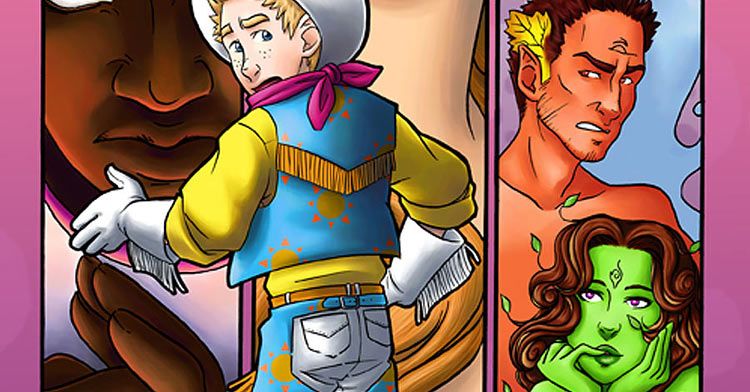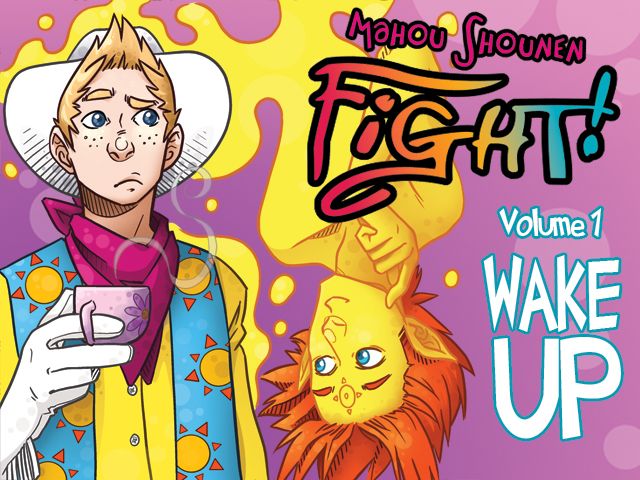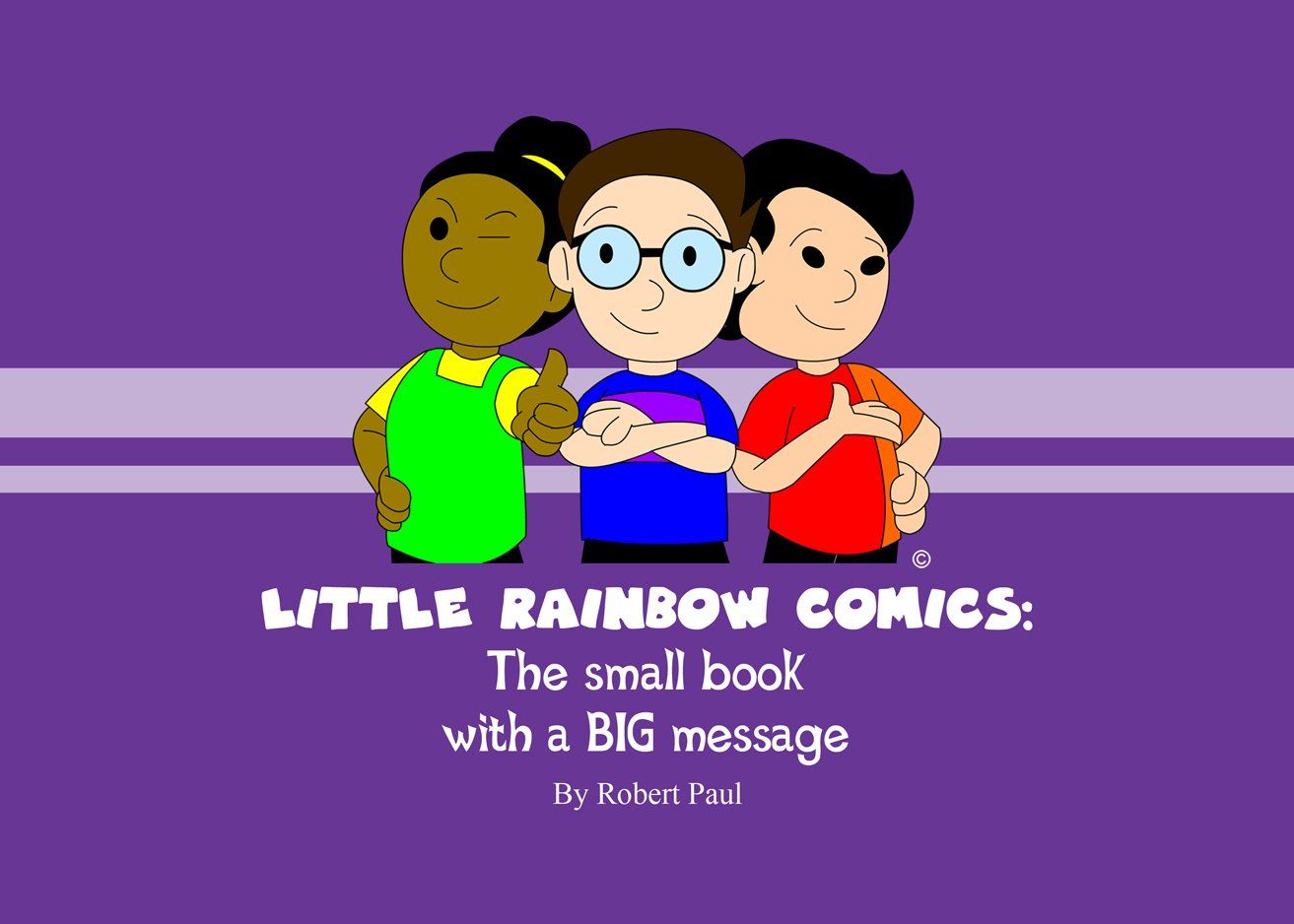From Kevin Keller to a quartet of magical boys to the Lumberjanes, the panel on LGBT Comics for Young Readers at Comic-Con International in San Diego presented a rich array of comics and characters for all audiences.
"We were making the story we would have wanted to read at the ages of 12 to 17 that didn't exist," said Dusty Jack, who teamed up with JD Saxon to create "Mahou Shounen Fight," a takeoff on the magical-girl genre featuring a cast of gay and genderqueer males. "We wanted to write a genre story with all of the different kind of weird things that we are that we never get to see anywhere else," she said. "If you never see yourself in what's out there, how can you feel like you are part of society?"
While Saxon and Jack created a cast that varies widely in ethnicity, sexuality, and gender orientation, they are careful to not let their comic become "a gay thing rather than a genre thing," as Jack put it. "There's nothing wrong with it being a gay thing," she said, "but if you are trying to make it more accessible and less pigeonholed, then I think there is a balance you have to find of not going too far in one direction or another. And I think you could say the same thing about straight stuff, too. I don't necessarily want all the focus in my genre stuff to be on straight romance any more than gay romance."
"A big part of our goal is to break down this idea that gay equals adult," added Saxon. "For so long, the only kind of comics you could find -- and don't get me wrong, I love them -- were gay erotica. So I think society as a whole got this idea that if it's gay, it's not appropriate for children. Our biggest mission statement is fighting against the idea that if it's gay, it can't be for kids." This statement drew applause from the audience.
"Ditto!" said Grace Ellis, one of the writers of the BOOM! Studios series "Lumberjanes." "There is definitely a need for this kind of thing. Everybody who is working on 'Lumberjanes' is really cognizant of that need." "Lumberjanes" is a story about five girls at a summer camp who solve mysteries and fight monsters, and while two of the girls are in a relationship, Ellis is emphatic that the comic is about friendship first and foremost.
On the other hand, Charles "Zan" Christensen, the publisher of Northwest Press, said the comics he preferred when he was younger were the ones that didn't appear to be kids' comics. "I'm talking about the Chris Claremont X-Men comics, the New Mutants, things like that, that were absolutely like catnip to angsty gay teens," he said. While they were moderated in terms of graphic sex and violence, they weren't "dumbed down," in his words. That's what he strove for when he was writing "The Power Within," a comic about a gay teen who is bullied. "I wanted it to be a really honest story," he said. "It all takes place in school, so it's not about sex, and it's not about him at home, but I wanted him to deal with stuff. It was kind of brutal and it was kind of ugly the way he gets treated, but I moderated some of the language. They don't call him 'fag' in the book -- they start to and then the superhero alter-ego appears and beats them up. I really wanted it to ring true and to be honest. I think that's the most important thing when you are doing work for younger readers is make it something they can get the most of and grow into because that will really stick with them."
"I loved Bugs Bunny growing up, and I think as a kid I missed a lot of the subtext of Bugs Bunny, but as an adult I'm like 'Oh my gosh, it's hilarious,'" said Brian Andersen, the creator of "So Super Duper," a comic about a superhero who doesn't realize he is gay. "What we are all saying is just because it's for youth doesn't mean it's dumb or it's cutesy or it doesn't have drama or it doesn't have grit or it doesn't have power to touch you. What we are all trying to achieve is a book that anybody can pick up, whether you are old or young or straight or gay or a mutant or a human or whatever, something that anyone can pick up and say hey that is a good story and I can enjoy it regardless of whether it has sex and violence and all that fun stuff."
Each of the creators on the panel spent some time discussing his or her comic and how it relates to other comics or to pop culture at large.
Elizabeth Watasin described her comic "Charm School" as "like 'Grease,' where the girl meets the girl who is kind of like John Travolta but she's a witch vampire and the girl is a witch." The series first ran in "Action Girl Comics," an all-ages title, and Watasin described it as "kind of Archie-ish": "It is romance -- I wouldn't say late teens, just teens,. Nothing happens in it except the games of desire and infatuation, dealing with crushes, stuff like that." The series was originally published by Slave Labor Graphics, but Watasin recently got it back and plans to continue the story.
"Little Rainbow Comics," at the other end of the age spectrum, is a webcomic based on a trio of first-graders. "The first strip is first-grader-ish, but after that it gets very topical," said moderator P. Kristen Enos. "In terms of that first grade age, do you think that still works for having them talk about those topics?"
"They are first graders, but they are much older and wiser than they should be," said Paul. "Think about 'South Park,' or Stewie from 'Family Guy.' They are more intelligent than they should be, yet if they fall down they call for mommy even though they may be trying to kill her later on. I try to write like that, capture the innocence."
Dan Parent, the creator of Archie Comics' first openly gay character, Kevin Keller, was also at the panel and drew a round of applause when Kevin was mentioned. "We are going to be working on a new Kevin storyline for next year," he said. "It's been quite a ride." Parent talked about meeting actor George Takei at a convention and later asking him to guest star in an issue of "Kevin Keller." "He grew up reading Archie comics -- actually he was reading Archie comics when he was in an internment camp and grew up as an Archie fan," Parent said. Parent wrote the Kevin Keller story, in which Takei came to Riverdale, but the best part, he said, was meeting Takei in real life.
Parent noted that some of his Kevin Keller comics had drawn opposition, most famously from a group called the Million Moms who threatened a boycott if the comics depicting Kevin Keller's wedding were not removed from Toys R Us. Those protests actually boost sales, Parent said, and he admitted to poking some fun at the Million Moms in the comic in which Kevin gets his first kiss, hoping to stoke the fires. "They didn't bite that time," he said.
During the question and answer session, a trans woman who transitioned as a youth asked how trans characters could be represented better, rather than simply being included under the same umbrella as gay and lesbian characters. "I would say someone like you should write a story that would convey this," said Andersen. "We need people who are living that experience and are aware.

"It comes in waves," said Chrisensen. "There is always a gap, there is always a need to be filled and voices that aren't being represented, and there always, always comes a big wave of those voices filling that need. I am seeing a lot of really great trans work coming up. Some is genderqueer; some has some gay themes as well, but it is definitely about gender identity and it's much more personal, it's not umbrella."
"I definitely think the best thing you can do if you know of work like that is Tweet it, support it, like it, share it, so that it gets out there," he added. "Promoting the stuff that is doing it right is the best thing."
Enos had a different take. "Everybody here has pretty much admitted that they are coming from their own personal experience," she said, "and I know in other panels I have seen people who are very well known in the comics community and one person has admitted that he is interested in tackling that subject but he is so concerned that he will say something wrong that he'd rather not tackle it for fear of unintentionally offending someone."
"I think that is one of our biggest challenges," said Saxon, "and one of the biggest problems that all sexual and gender minorities face in media is people who just brush it off by saying 'I don't want to do it wrong so I won't even try.' That's why there are not enough women in media, and that's why there are not enough gay people or lesbian people or trans people in media, because the people who aren't gay or lesbian or bisexual or trans are too scared to try, and I think that needs to stop." The people who call themselves allies need to start diversifying their work, she said. "And if you are afraid, then make a friend!" The audience applauded. "Talk to a trans person, make a new friend, meet someone and show them your script and ask for their feedback," she continued. "And don't just do it for one person because one trans person's experience can't necessarily speak for everyone."
"Also, read a book, a really serious guide" said Ellis. "Expand your horizons."
A teacher asked about how she can determine whether a book is appropriate for her classroom or school library. "I would get a copy and assess it yourself," said Christensen.
And be prepared to defend it, added Saxon. "If you have a book you are looking to add to your library that has a straight couple kissing, no one is even going to say anything about it," she said. "If the book has a gay or lesbian or trans person kissing someone of the same gender, then someone is going to raise a stink. As long as you are familiar with the work and prepared to defend it, we need people like you. So, thank you."



